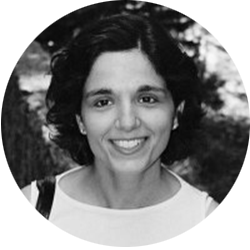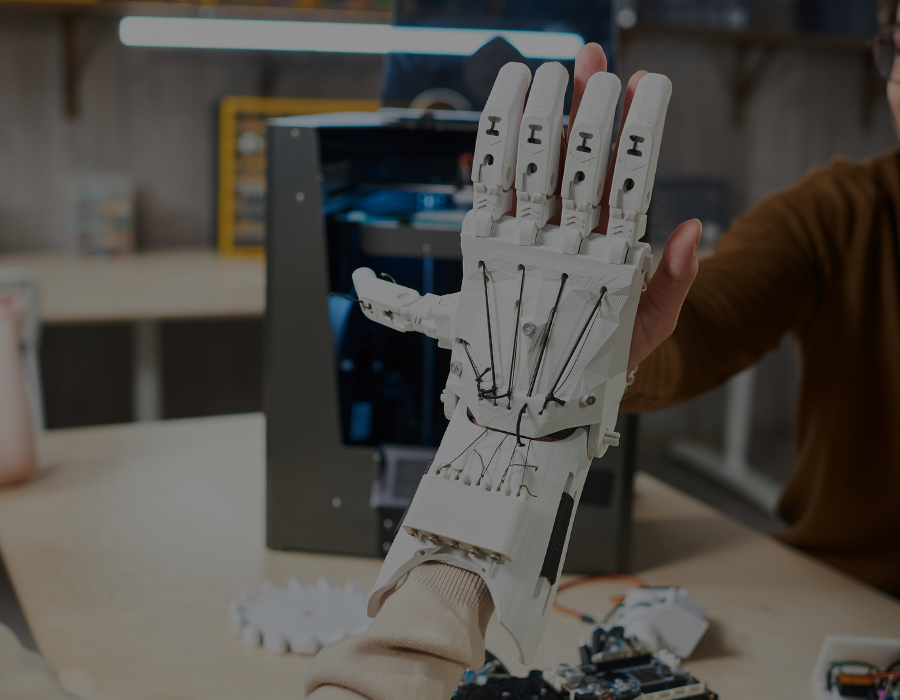We hear from Professor Zoe Kourtzi, who is leading ai@cam’s interdisciplinary initiative to revolutionise our understanding and treatment of brain and mental health disorders.

What is the inspiration behind the Responsible AI for better lifelong brain and mental health project?
The inspiration behind this project stems from the global challenge we are facing in terms of brain and mental health. We know that brain and mental health disorders affect more than 3 billion people worldwide over their lifetime. We know that dementia is the leading cause of death in England and Wales, accounting for around 11% of all deaths. Suicide is the biggest killer of young people under the age of 35 in the UK. Brain and mental health disorders touch every family.
However, these issues have long been ignored. While we have extensive knowledge about physical health and disease prevention, there’s been significant stigma around brain and mental health disorders. Although we have seen substantial research in brain and mental health, the focus on translating findings into practical solutions has only emerged in recent years. Government priorities and a revolution in research has meant we have started to see a shift in attitudes.
About 15 years ago, there was a move away from the small-scale studies, typical in experimental medicine and psychology, towards use of large-scale data. Previously, our capacity for large population studies was limited. However, advances in mass data collection, artificial intelligence and machine learning now allow us to mine and harness this data effectively, understanding the complex interactions within the brain.
Traditionally, we tried to isolate factors influencing the brain using limited statistical tools, but now we recognise the brain’s complexity and the myriad factors affecting it. Large-scale data and new computational methods allow us to understand these interactions better.
As researchers, our motivation for this ai@cam project is to use the latest advances in brain imaging technology and AI to address the significant gap in understanding, predicting, preventing and treating brain health and disease and mental health disorders. We want to make resources available to the people who need them most.
Why does research like this matter?
When a patient presents with severe Alzheimer’s symptoms, it’s often too late for effective intervention. However, when symptoms are mild, it’s challenging to diagnose the cause and predict the trajectory of the illness. This is where advanced computer models come in. They can make early diagnoses more precise than traditional methods, reducing the misdiagnosis rate, which is around 30% for early-stage dementia.
Early and accurate prediction can significantly alter clinical pathways. Although there may not be a cure for dementia, early intervention can delay symptoms or prevent them from impacting an individual’s life. For instance, identifying dementia 10 to 15 years before symptoms appear provides a crucial window for interventions. Lifestyle changes and managing conditions like cardiovascular disease or inflammation can make a significant difference.
Currently, brain scans like PET (Positron Emission Tomography) are the most precise diagnostic tools we have, but they are expensive and scarce, with only a very small percentage of dementia-diagnosed patients accessing them woldwide. Even Magnetic Resonance Imaging (MRIs) are not always helpful in early stages. This is where AI comes in. It’s learned from thousands of pieces of patient data and can identify patterns that indicate potential disease. You don’t necessarily need any kind of invasive brain data. There are already large cohorts looking at electronic health records and school records right from infancy.
I think this approach can really revolutionise our thinking about people’s health trajectory over their lifetime. The problem we currently have is that we try to compartmentalise diseases but there are many different brain and mental health disorders that are very much interlinked. By using AI, we can track people’s brain and mental health at the same time.
Our AI models are multi-modal, integrating various data types, including MRIs, cognition, genetics and biomarkers to provide a holistic analysis. Personally, I think the real revolution is going to come from digital data.
How will the ai@cam project help to achieve better brain and mental health?
Our primary focus is bridging the gap between research and practical applications. We’re building models at an unprecedented rate, but they risk staying on the shelves unless we bring together computer scientists, engineers, mathematicians with clinicians and public health experts who understand more about the data.
To make meaningful progress, we want to bring together people with the questions and the data with those developing tools so they can start interacting and understanding each other’s challenges. This is vital because different sectors have different perspectives: computer scientists think in terms of variables and code, while clinicians focus on biomarkers and patient well-being. Creating a common understanding between these groups is essential for developing trustworthy tools that can be translated into practical applications.
Our goal is to expedite the pathway from research to real-world application. This involves not only researchers but also regulatory bodies to navigate the rapidly evolving landscape of AI algorithms. As medical devices are evolving at such a rapid pace, these tools need to reach clinical trials in hospitals and pharmaceutical research more quickly too.
Currently, clinical trials in brain and mental health are slow and often ineffective due to imprecise patient selection. Our models can stratify patients more accurately, predicting disease progression and identifying patients who would benefit most from early intervention. This precision will make clinical trials faster and more effective, addressing the lengthy process of drug development, especially in areas like dementia disorders.
We can’t afford to wait decades for advancements. We need these tools in clinical practice and pharmaceutical trials now. We can expedite treatments that can change the diagnostic pathway and really make a difference in this space that is moving so slowly. AI can help us to move faster, to accelerate the pathway. The biggest challenge for us right now is ensuring that it delivers trustworthy tools.
What are the challenges in making sure these tools are trustworthy?
There are huge concerns about the development and implementation of AI algorithms. These algorithms are only as good as the data they learn from, which means, if the data is biased, the algorithms will inherit those biases. That’s why we need data to be open and from very diverse populations and samples, ensuring it is not skewed towards one type of population.
In practice, these models should serve as decision support systems for clinicians. Clinicians can use these tools to supplement their knowledge, which takes into account patient history and other factors not captured by the models. This approach helps reduce health inequalities, because not everyone has access to good medical facilities. In locations with limited resources, such as rural regions or countries without advanced diagnostic tools like MRI and PET scans, these models can really make a difference in diagnosis and care.
For this project, we’re looking globally because we don’t want our models to be biased. We are trying to really diversify our sample of data and carefully optimise the algorithms for data from very diverse populations. We’re looking across the UK, but we’re also connected to large clinical trials and memory clinics abroad. We’re working with a big programme in Singapore and we’re hoping to be able to work with a large cohort across 59 sites in the US, as well as sites in Latin America. Our focus is on ensuring algorithms are ethical, unbiased, monitored and controlled for errors.
What inspired your own work in this field?
Growing up in Greece, I was really good at maths and physics and planned to study computer science. However, an elective in psychology during high school changed my path. Learning about Pavlov’s experiments on behaviour fascinated me, and I realised I wanted to work with and understand people rather than spend my life behind a computer.
This interest led me from experimental psychology to neuroscience. A significant turning point was my time in the US for my PhD, which was during the brain imaging revolution. We conducted scans overnight at Massachusetts General Hospital in Boston, which showed me the brain’s complexity and how algorithms could help understand the brain. This experience shifted my focus to combining human and animal cognition studies with computational methods to analyse rich data, simulate brain functions and predict behaviours.
The advent of big data was a dream come true. It allowed us to embrace the brain’s complexity and understand its workings in real life. You need to embrace that complexity and that’s what these models can do.
What difference can collaborative projects like this make for brain health and mental disorders?
We’re just starting out with this project, but my hope is that it really gives our work a different scope. We have been doing all of this work on a small scale, but ai@cam gives us the opportunity to really scale up as a university initiative.
What we want to do is to bring different groups together in this space and connect externally with different stakeholders to come and work with us and accelerate this pathway.
Cambridge has brilliant people but people often work in their own silos and there are not enough initiatives to support cross-disciplinary work. Cambridge initiatives like ai@cam are leading the way in promoting and funding this type of collaborative research.
Collaboration with industry, charities and real-world partners is crucial. These partnerships bring valuable life experience and help shape research questions – accelerating the bridge between research and practice.
I’m now in my 50s and for me the dream is to build a cross-disciplinary new generation. Teamwork is really important. I now try to train people to work in this cross-disciplinary space – to really move out of their comfort zone and learn about another space, because together we can really make a difference.
As told to Vicky Anning
More about Responsible AI for better lifelong brain and mental health project
The project will be led by the Department of Psychology at the University of Cambridge and delivered by an interdisciplinary team of experts in areas including data science, software engineering, neuroscience and clinical practice from across the university.
If you would like to find out more, please email Zoe Kourtzi - zk240@cam.ac.uk.







